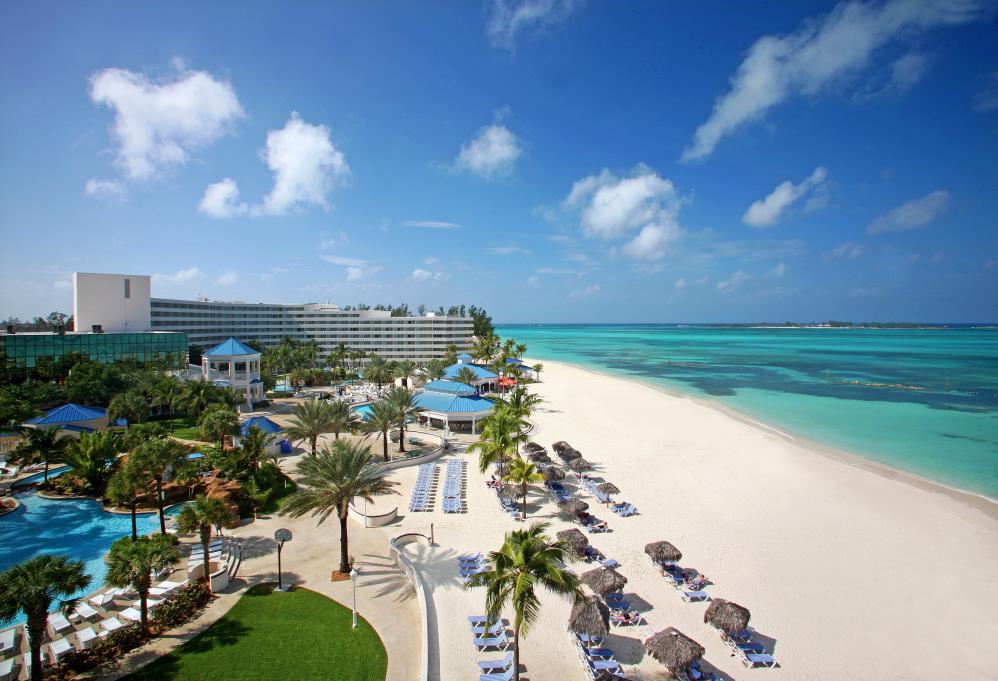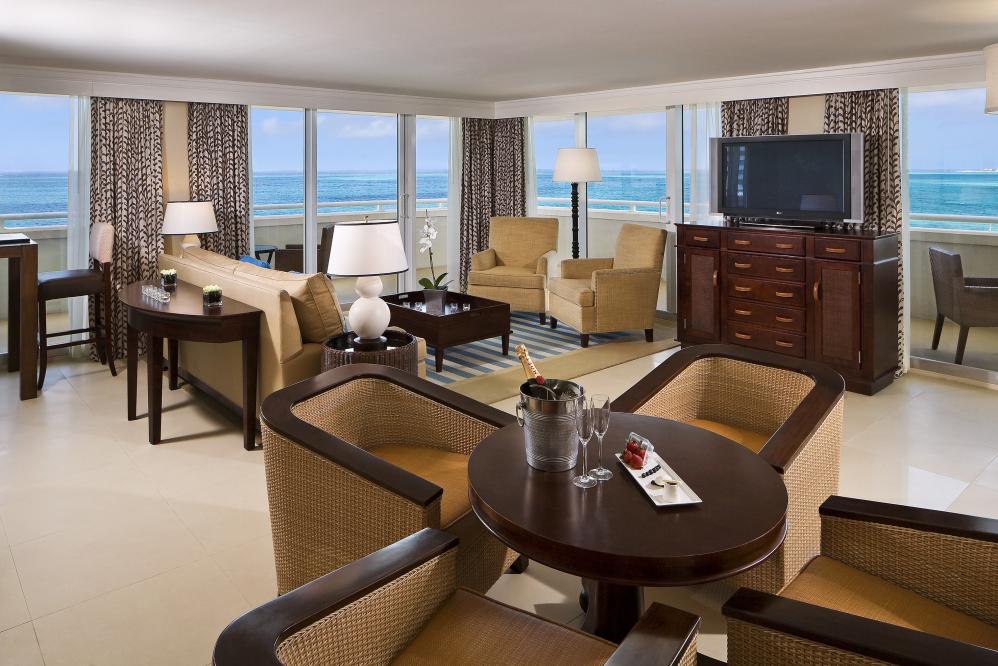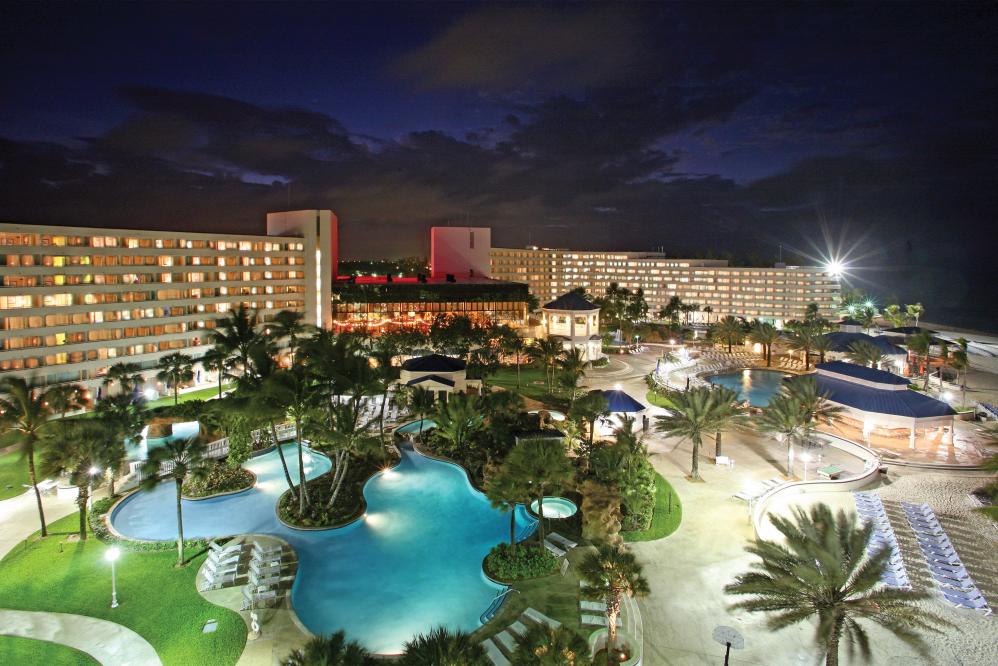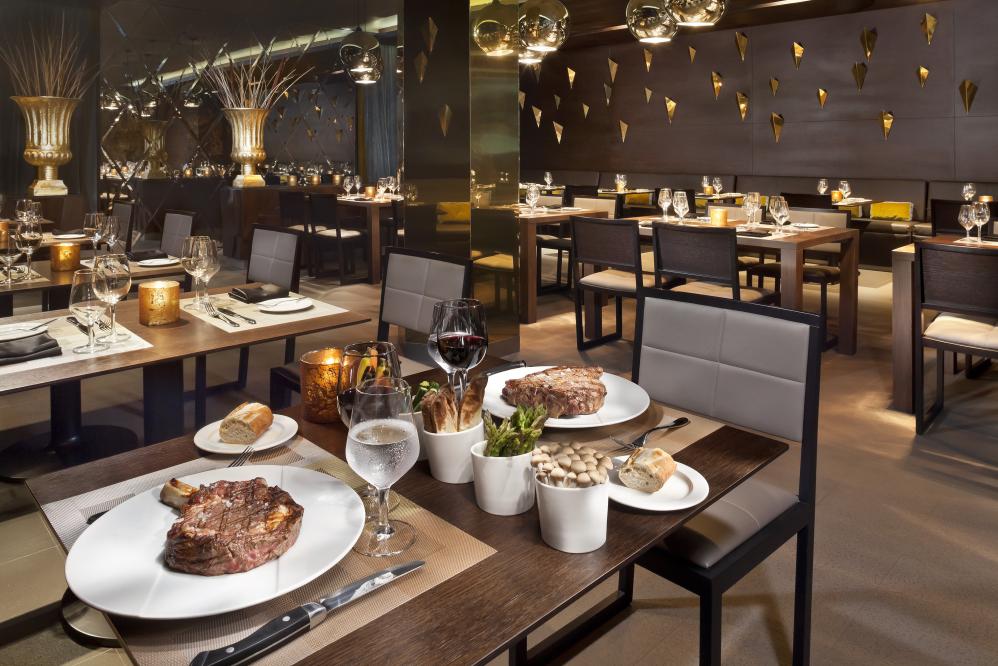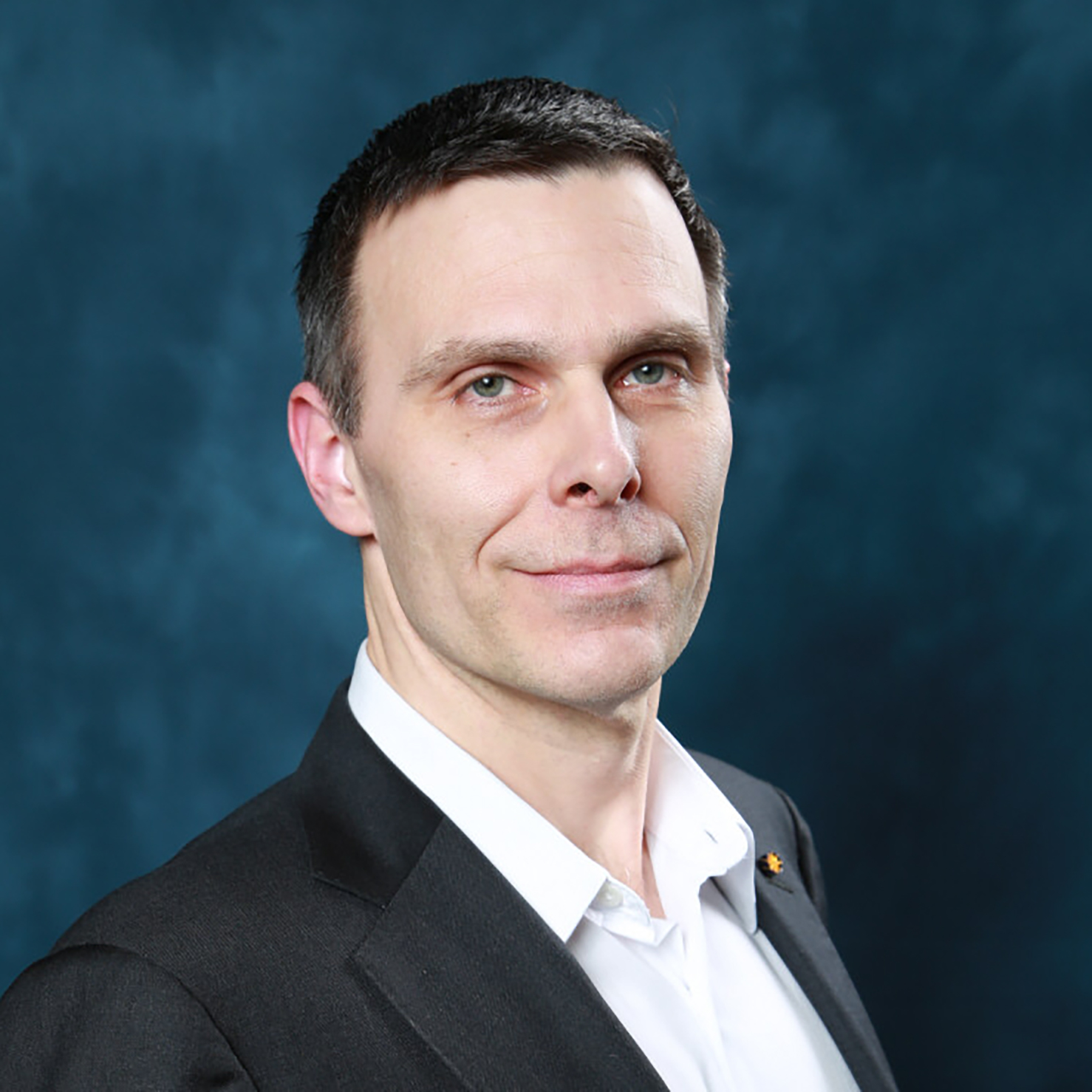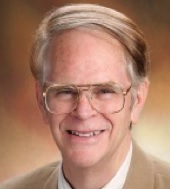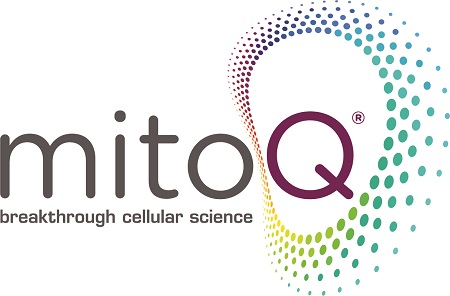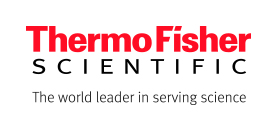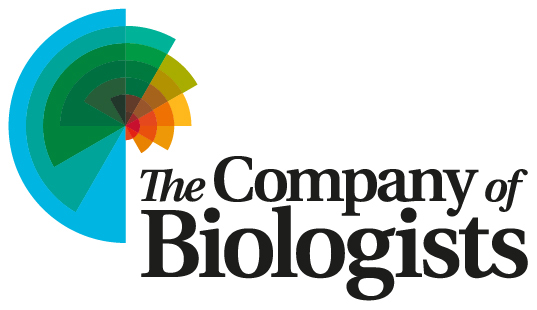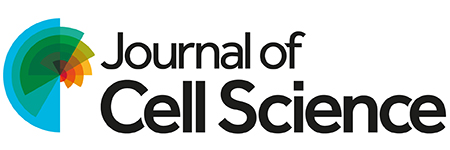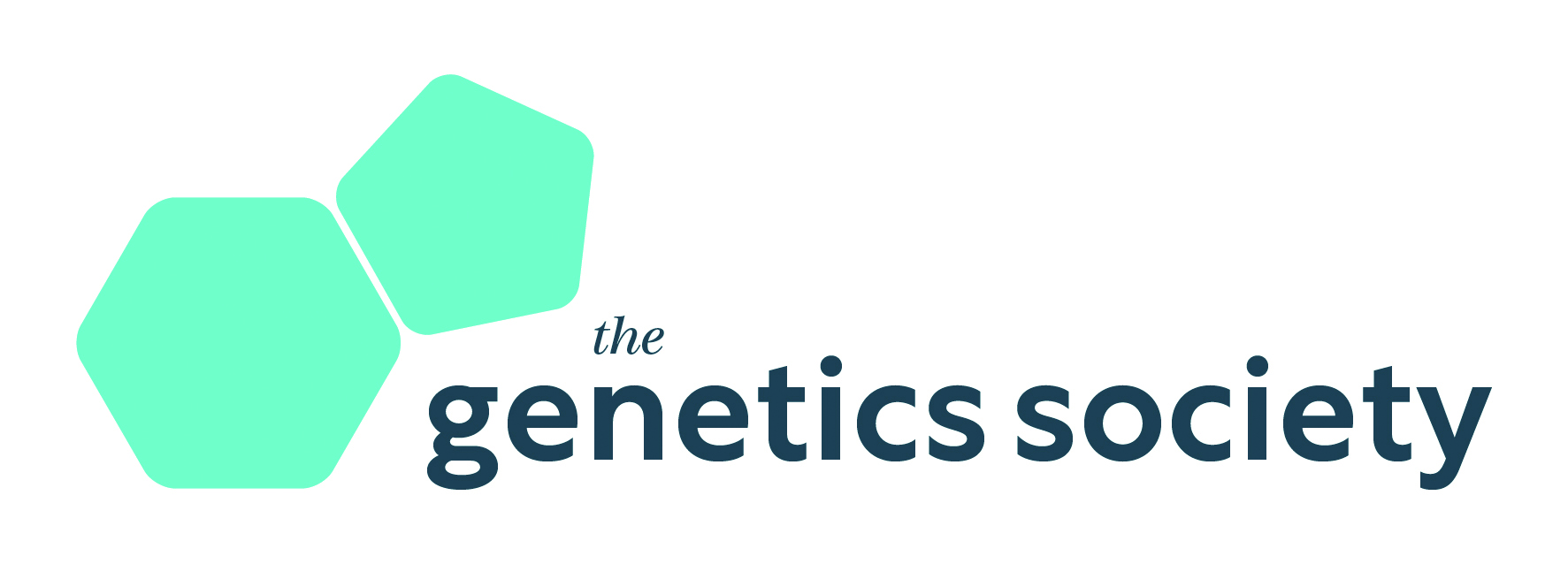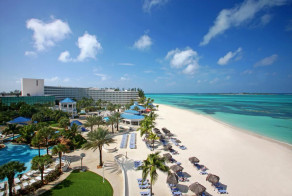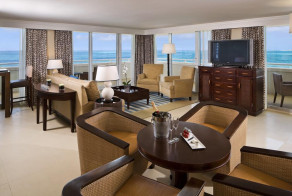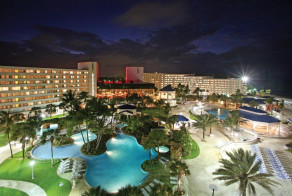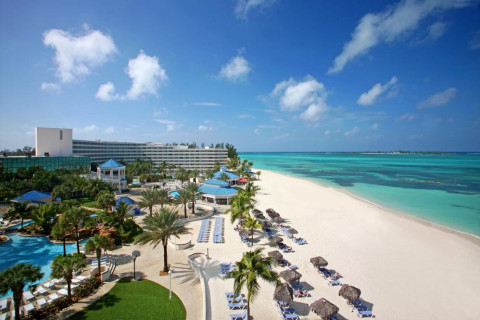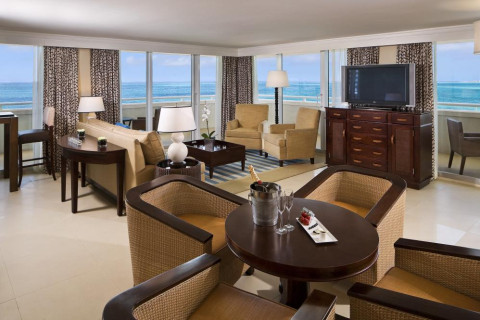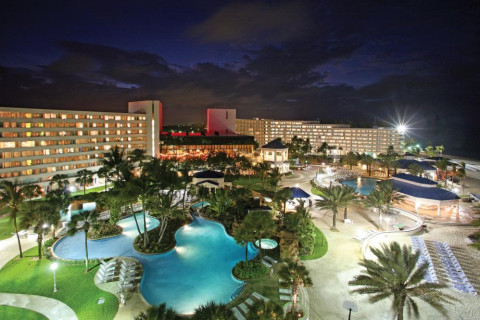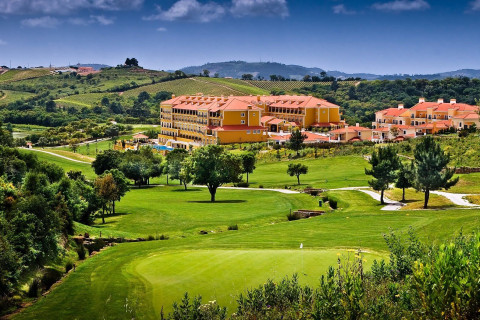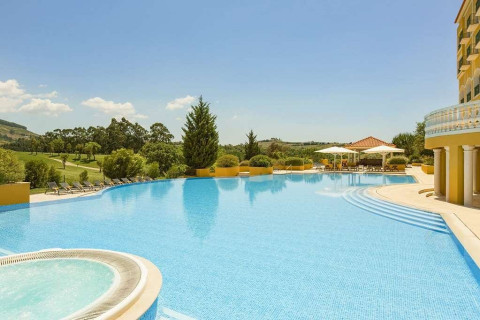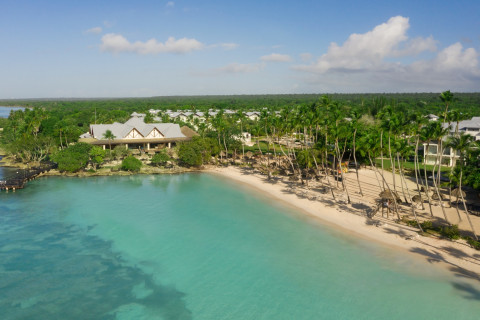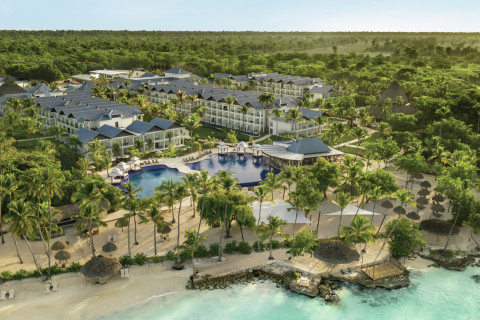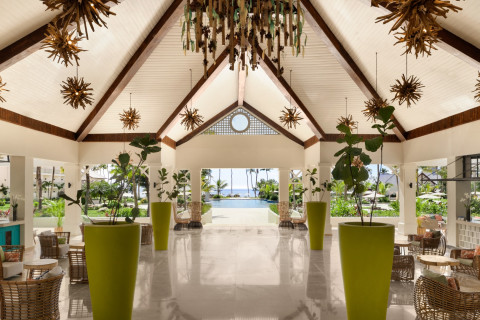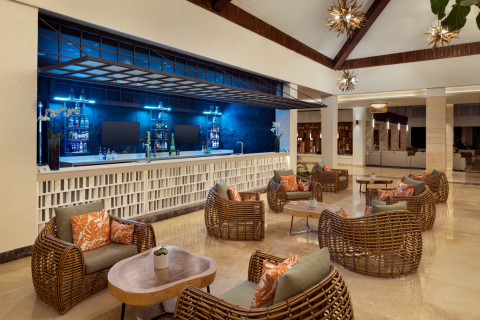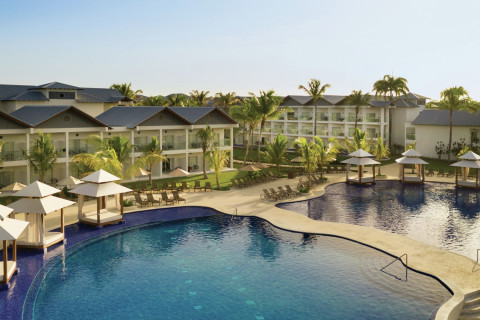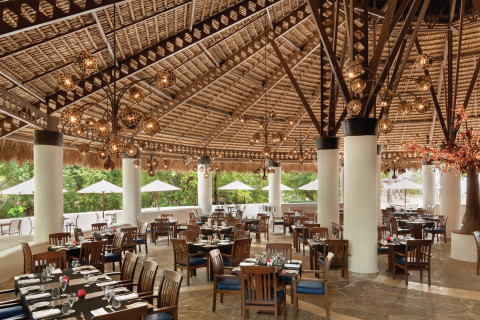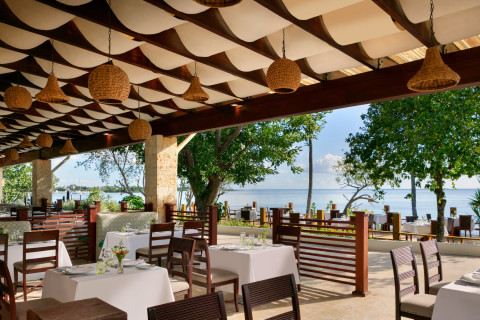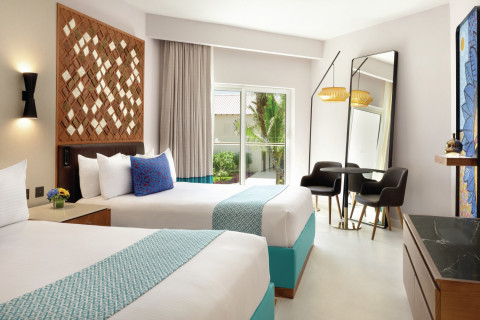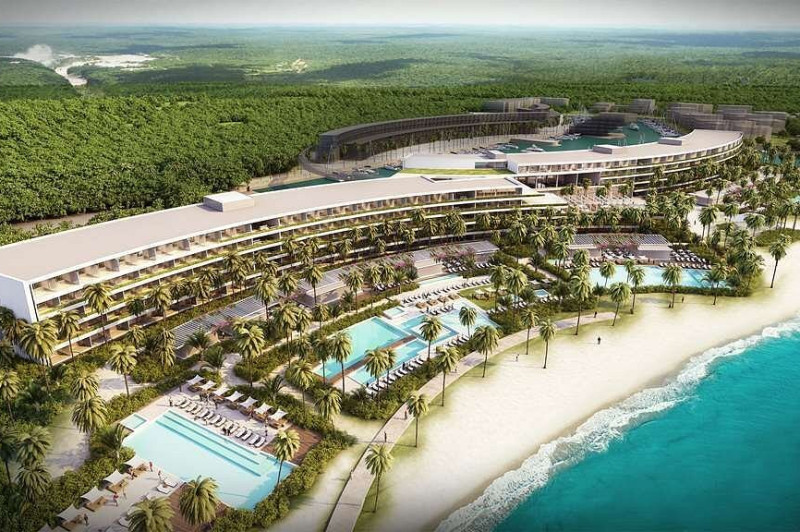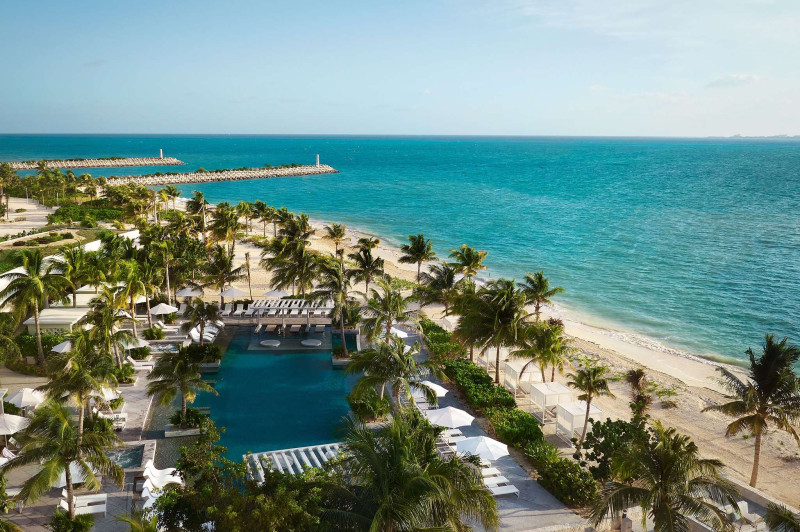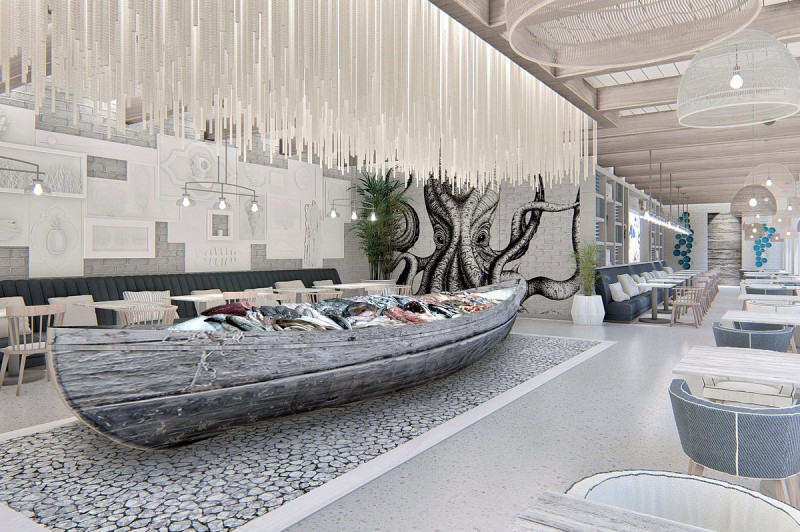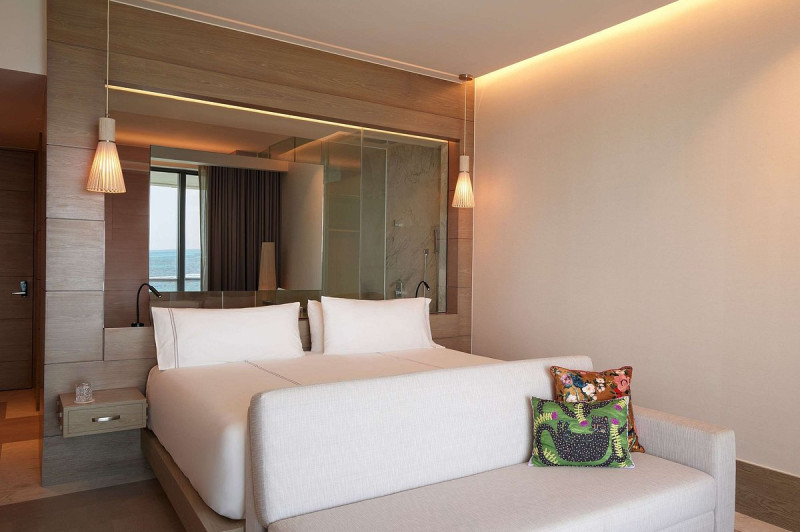- Home
- Past Conferences
- Mitochondria: From Basic Biology to Mechanisms of Disease Conference
Mitochondria: From Basic Biology to Mechanisms of Disease Conference
Mitochondria and Disease
27 Feb - 02 Mar 2019
Nassau, Bahamas
Early Bird - Expired • Talk Submission - Expired • Poster Submission - Expired • Registration & Payment Deadline - Expired
Report
The first Mitochondria: From Basic Biology to Mechanisms of Disease Conference, which took place in Nassau, Bahamas from 27 February – 02 March, 2019, covered a breadth of mitochondrial biology from fundamental questions about mitochondrial structure and function to the role of these organelles in aging and disease. Conference chairs Dr. Marcia Haigis (Professor of Cell Biology, Harvard Medical School, Boston, MA, USA) and Dr. Matt Kaeberlein (Professor of Pathology, University of Washington, Seattle, WA, USA) brought together a diverse group of speakers all working on basic and clinical aspects of mitochondrial biology.
There was a total of 74 attendees (46% female, 54% male) from around the world, with the United States, Canada, UK, Italy, Finland, Switzerland, Spain, Germany, Ireland, Sweden and France are among the countries that were represented. Participants were academic scientists (69%), industry scientists (11%), and students (20%), with nearly all attendees giving oral or platform presentations on cutting-edge research.
Mitochondria act at the interface of numerous processes critical for cellular function and organismal health. Recent years have seen a growing appreciation for the diverse roles that mitochondria play not only in energy production and metabolism, but also in maintenance of redox balance, regulation of gene expression, ion homeostasis, and control of cell fate. Mitochondrial maintenance is critical for proper function of cells and tissues, and mitochondrial dysfunction underlies numerous disease processes ranging from severe childhood mitochondrial disorders, to heart disease, neurodegenerative disorders, cancer, and aging itself.
The 2019 meeting strove to synthesize major recent advances in mitochondrial research and to build new connections. The diverse audience, including many internationally distinguished speakers, and the lively discussions illustrated the importance of the theme. The success of the meeting is evident by the many new collaborations that came about. Comments from participants of all career stages emphasised their wish to see the series continue.
“The scope of mitochondrial research was very wide, and it was fantastic to hear the variety of topics.”
The conference began with a tour de force Keynote presentation from Doug Wallace that discussed the role of mitochondrial dysfunction in many common diseases that are not often thought of as mitochondrial disorders, such as autism, diabetes, hypertension, and obesity. This perfectly illustrated the importance of the topic and set the stage for the rest of the meeting.
The remainder of the first day focused on the role of mitochondria in aging and stem cells. Mitochondrial dysfunction is one of the Hallmarks of Aging, and there are emerging overlaps between molecular mechanisms shared by mitochondrial disease and normative aging. These include the importance of mTOR signaling and NAD homeostasis, as discussed by Will Mair and Johan Auwerx, respectively. Yousin Suh presented an intriguing genetic signature among nuclear encoded mitochondrial genes that is associated with longevity in people, perhaps suggesting that mitochondrial variation plays a key role in determining human lifespan.
The theme of the second day was centered on mechanisms of severe mitochondrial disease and interventions that are currently being developed to treat these disorders. Isha Jain spoke in the morning about the remarkable effects of hypoxia therapy to almost completely prevent disease progression in a mouse model of the childhood mitochondrial disorder Leigh Syndrome.
Later in the afternoon session, Thomas Langer returned to the topic of hypoxia and presented an intricate network of interactions to regulate mitochondrial structure and function involving hypoxic regulation of mTOR acting through phosphatidyl ethanolamine to control the activity of mitochondrial proteases.
These exciting sessions included breaks for discussions with refreshments and poster viewing. A ‘Meet the Poster Presenters’ session right before lunch allowed each of the poster presenters to briefly introduce themselves and their research in a two minute flash talk. During the afternoon leisure time, participants sought relaxing conversations on the beautiful beach just outside the lecture room, went for a refreshing swim in the ocean, or saw the sights in beautiful Nassau. Discussions often further took place over dinner that could be taken at several lovely restaurants in the hotel.
The third day featured morning and afternoon session on mitochondrial homeostasis and modes of metabolism. A theme that wove throughout these sessions were the many different ways that mitochondria interact with the rest of the cell to maintain homeostasis through transmission of nucleic acid, protein, metabolite, and lipid signals. Gerry Shadel presented a fascinating talk about how these communication networks can sometimes go haywire, such as when mitochondrial DNA escapes into the cytoplasm, which in turn induces the cGAS-STING innate immune response. This response is normally important for detecting viral DNA, but in this context sensing of self-DNA as foreign causes a detrimental inflammatory response, which may be particularly problematic during aging, connecting back to the theme of day 1. This interweaving of concepts and pathways among the different sessions was common throughout the meeting and led to much discussion between participants who thought they worked on very different research questions only find new commonalities.
The more energetic participants went on a snorkeling expedition during the free time in the afternoon while others took advantage of the wonderful weather to explore the beach and continue informal discussions outdoors. The gala dinner featured live local entertainment, dancing, and awarding of the poster prizes.
“The group dinners were especially good at promoting interactions with multiple people - a good way to mix and meet new people.” Chris Brosey (The University of Texas M.D. Anderson Cancer Center)
The fourth day concluded the meeting with a session on crosstalk and communication, again emphasizing the way that mitochondria function within the context of cellular and organismal physiology. Liming Pei gave a fantastic short talk as the final talk of the meeting on the application of single cell nuclear RNA-sequencing to study mitochondrial myopathy, uncovering dramatic changes in cell composition and metabolism during different stages of disease progression.
The closing comments from the organisers expressed their pleasure with the range of superb talks and discussion. The meeting was attended by an enthusiastic and diverse audience, both with respect to stage of career, gender and nationality.
Interest in mitochondria, and appreciation for their importance in a broad range of conditions, continues to increase rapidly. We anticipate that enthusiasm will be high for the next Fusion Mitochondria conference.
Congratulations to all of those who received an award, details of which can be found below.
Poster Prize Awards
Alexanne Cuillerier (University of Ottawa)
Corey Rogers (Thomas Jefferson University)
Sarah Tucker (Harvard Medical School)
We would also like to thank those who gave a short talk (selected from abstracts).
Short Talks
Jorida Coku (University of Pennsylvania)
Ronald Davis (Scripps Research Institute Florida)
Anthony Grillo (University of Washington)
Michael Hottiger (University of Zurich)
Fahmida Jahan (University of Ottowa)
David Kashatus (University of Virginia)
Brett Kaufman (University of Pittsburgh)
Mireille Khacho (University of Ottowa)
Anna Klucnika (University of Cambridge)
Changhan Lee (University of Southern California)
John Lemasters (Medical University of South Carolina)
David Patten (University of Ottowa)
Liming Pei (Children’s Hospital of Philadelphia)
Marija Sajic (UCL Institute of Neurology)
Katharina Schlacher (MD Anderson Cancer Center)
Amanda Souza (Thermo Fisher Scientific)
Volkmar Weissig (Midwestern University Glendale)
Zhi Zhong (Medical University of South Carolina)
We thank our wonderful sponsors: MitoQ, ThermoFisher and The Company of Biologists.
The Journal of Cell Science and the Genetics Society were Media Partners. Their support was greatly appreciated and enabled us to fund many participants who otherwise may not have been able to attend.
“Thanks again for everything, it was a great meeting and we were delighted to sponsor and be able to assist with running it!” William Stow (MitoQ, Sponsor)
The meeting was expertly organized, smoothly run, and supported by Fusion Conferences, Ltd. We thank Laura Trundle and her team for their helpful interactions with organisers and participants.
Synopsis
Mitochondria act at the interface of numerous processes critical for cellular function and organismal health. Long recognized as the powerhouses of the cell, recent years have seen a growing appreciation for the diverse roles that mitochondria play not only in energy production and metabolism, but also in maintenance of redox balance, regulation of gene expression, ion homeostasis, and control of cell fate. Mitochondrial maintenance is critical for proper function of cells and tissues, and mitochondrial dysfunction underlies numerous disease processes ranging from severe childhood mitochondrial disorders, to heart disease, neurodegenerative disorders, cancer, and aging itself. This conference will bring together scientists and clinicians with expertise in a breadth of mitochondrial biology to explore topics at the interface of basic and translational biology. Mitochondrial basic mechanisms of organelle regulation, mitochondrial mechanisms of disease, cutting edge technologies, and interventional strategies will be emphasized.
Join the conference LinkedIn group to keep up to date with annoucements and latest news concerning the conference.
For those interested, this meeting is followed by our 3rd Interventions in Aging Conference, taking place from 03-06 March 2019 at the same venue.
Student Offer
Take advantage of this fantastic opportunity for students! Register a fully paying academic and bring a student for only $850. Unfortunately, Postdocs are not eligible for this offer. Both registration packages include; accommodation for the 27, 28 Feb and 01 Mar 2019 (on a shared basis for students) and a 24hour all-inclusive food and beverage package for the conference period. Once registered, please contact Laura Trundle to obtain a special registration link for your student.
Confirmed Keynote Speaker
Douglas Wallace (Children's Hospital of Philadelphia)
A MITOCHONDRIAL ETIOLOGY OF THE COMMON “COMPLEX” DISEASES
Confirmed Invited Speakers
Johan Auwerx (Ecole Polytechnique Federale de Lausanne)
NAD AND MITOCHONDRIA
Nika Danial (Dana-Farber Cancer Institute / Harvard Medical School)
MITOCHONDRIAL PYRUVATE HANDLING AND CELLULAR RESPONSES TO INFLAMMATION
José Antonio Enriquez (CNIC)
CONSEQUENCES OF mtDNA HETEROPLASMY
Steven Gross (Weill Cornell Medical College)
MITOCHONDRIAL GENE MUTATIONS TRIGGER A COMMON PATTERN OF METABOLIC REWIRING AND SUGGEST A NOVEL THERAPEUTIC STRATEGY
Cole Haynes (University of Massachusetts Medical School)
EXPANDING AND SHRINKING THE MITOCHONDRIAL NETWORK
Isha Jain (University of California, San Francisco)
TURNING THE OXYGEN DIAL AS A THERAPY: HYPOXIA TREATMENT FOR MITOCHONDRIAL DYSFUNCTION
Leanne Jones (University of California, Los Angeles)
ROLE OF MITOCHONDRIAL DYNAMICS IN TISSUE STEM CELLS
Thomas Langer (University of Cologne)
PROTEOLYTIC CONTROL OF MITOCHONDRIAL MEMBRANE HOMEOSTASIS
William Mair (Harvard University)
NEURONAL TORC1 MODULATES LONGEVITY VIA AMPK AND CELL NONAUTONOMOUS REGULATION OF MITOCHONDRIAL DYNAMICS IN C. ELEGANS
Heidi McBride (McGill University)
EXPLORING THE MECHANISM OF IRON DELIVERY TO MITOCHONDRIA
Jodi Nunnari (University of California, Davis)
MITOCHONDRIAL BEHAVIOR
Philipp Scherer (The University of Texas Southwestern Medical Center)
MITOCHONDRIAL DYSFUNCTION IN THE ADIPOCYTE
Luca Scorrano (University of Padova)
KEEPING MITOCHONDRIA IN SHAPE: A MATTER OF LIFE AND DEATH
Gerald Shadel (The Salk Institute for Biological Studies)
ADAPTIVE RESPONSES TO MITOCHONDRIAL STRESS
Yousin Suh (Albert Einstein College of Medicine)
FUNCTIONAL GENETIC VARIATION IN NUCLEAR-ENCODED MITOCHONDRIAL GENES ASSOCIATED WITH HUMAN LONGEVITY
Anu Suomalainen-Wartiovaara (University of Helsinki)
MITOCHONDRIAL DISEASE PHYSIOLOGY REVEALS MECHANISMS OF METABOLIC SIGNALING
Eileen White (Rutgers Cancer Institute of New Jersey)
MITOCHONDRIA AND CANCER
Kelvin Yen (University of Southern California)
A NOVEL MITOCHONDRIAL DERIVED PEPTIDE AFFECTING DIABETES
Learning Objectives
- Basic mechanisms and regulation of mitochondrial biology
- Discuss crosstalk and integration of mitochondrial pathways with other cellular compartments and cell signalling.
- Learn about how these pathways of mitochondrial dysfunction contribute to diseases
- Discuss therapies targeting mitochondria in human diseases
- Discuss future directions for mitochondrial research
Target Audience
- Basic scientists studying mechanisms of mitochondrial and cell biology
- Clinicians and translational biologists interested in mitochondrial disease
- Neuroscientists studying mitochondrial function and role of mitochondria in neurodegenerative disease
- Scientists studying processes where mitochondria are important (metabolism, aging, cancer, heart function, etc.)
Educational Need
Mitochondria sit at the intersection of many important areas of biology and biomedicine, but there are limited opportunities for people studying different areas of biology where mitochondria are important (aging, neurodegenerative disease, inherited disorders, mitochondria disease, heart disease, myopathies and muscular dystrophies, evolutionary biology, obesity, diabetes, kidney disease, etc.) to come together at one meeting. The primary outcome we hope to stimulate is interaction and cross fertilization of ideas between these diverse scientists leading to new collaborations and synergistic advances.
Confirmed Speakers
Chairs
Plenary Speakers
Invited Speakers
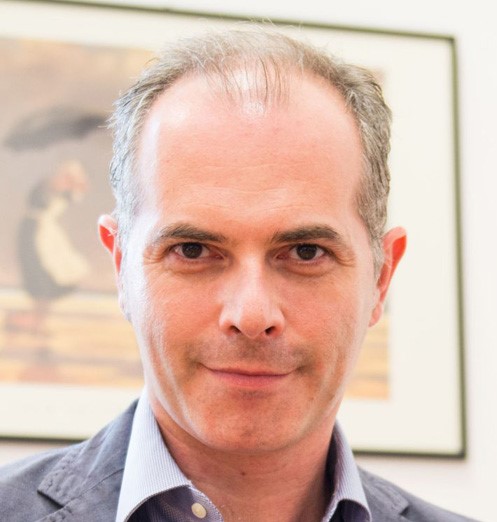
Luca Scorrano
Professor of Biochemistry, University of Padua, Veneto Institute of Molecular Medicine
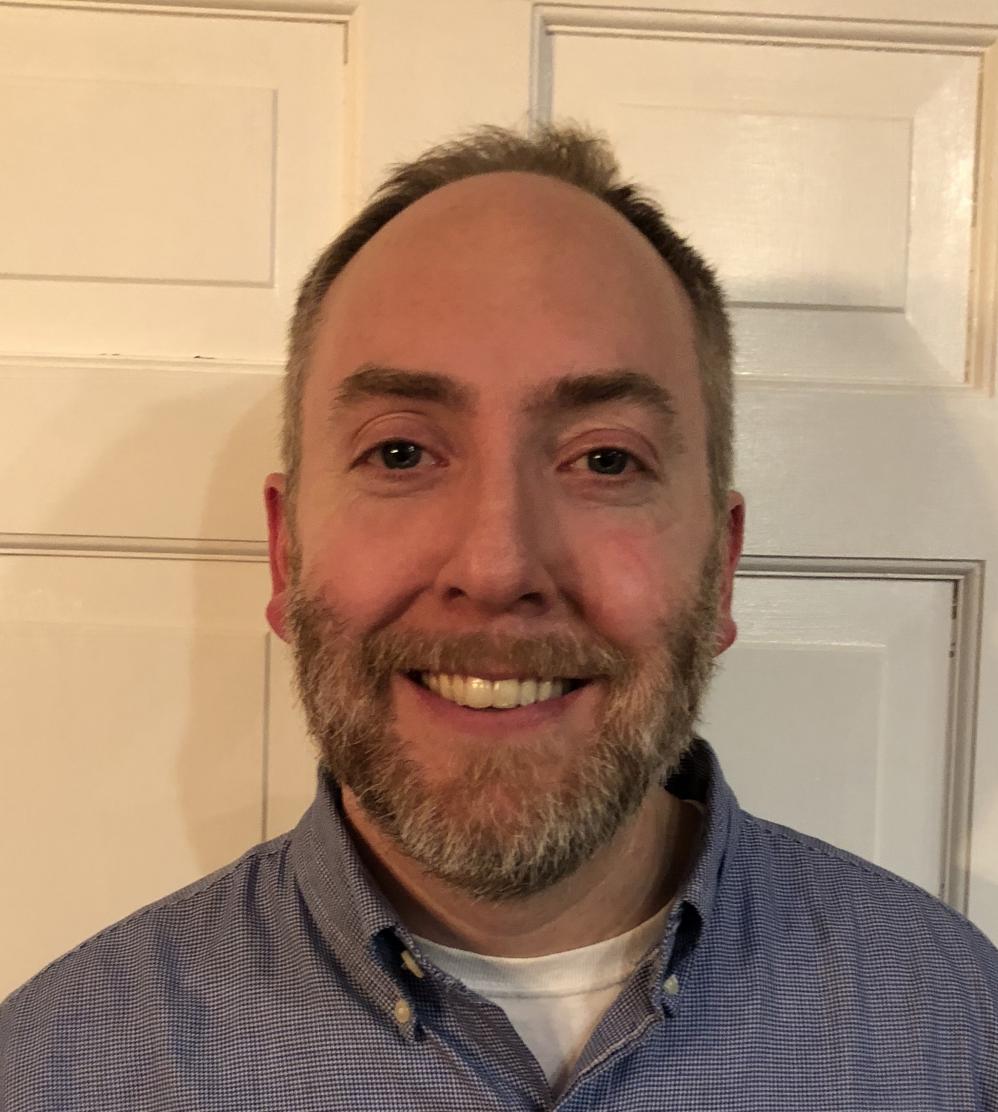
Cole Haynes
Professor, University of Massachusetts Medical School
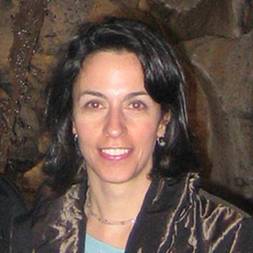
Nika Danial
Associate Professor of Medicine , Dana-Farber Cancer Institute/Harvard Medical School

Isha Jain
UCSF Faculty Fellow, University of California, San Francisco
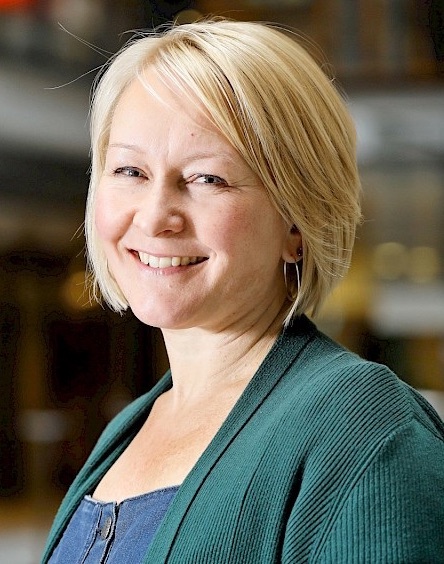
Anu Suomalainen
Academy Professor, University of Helsinki
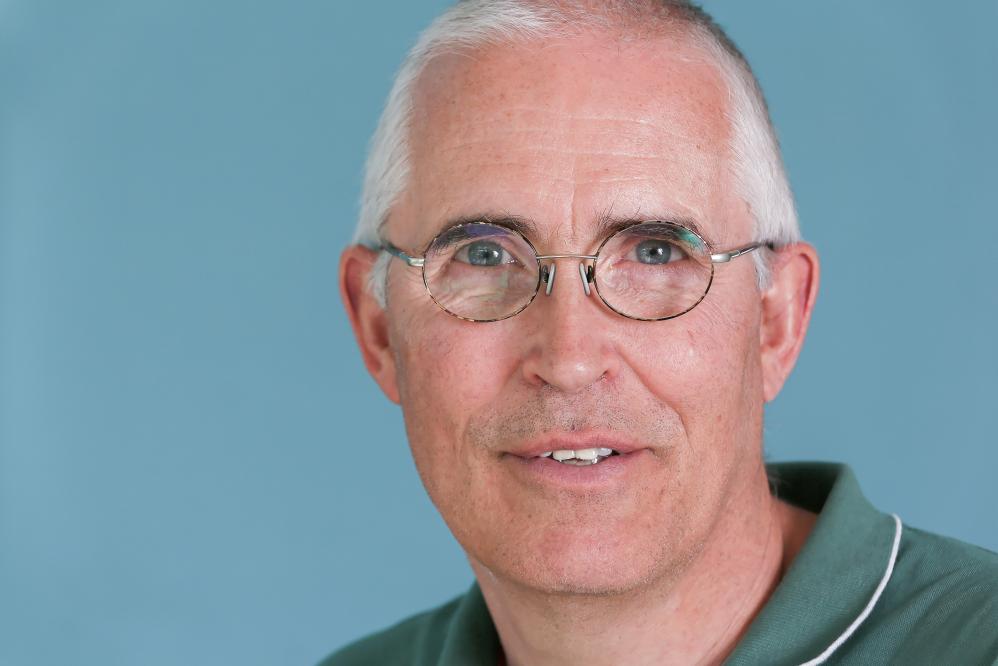
Johan Auwerx
Professor, Ecole Polytechnique Federale de Lausanne-EPFL

Jose Antonio Enriquez
Full Professor, Fundacion CNIC
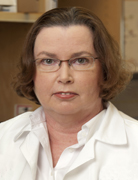
Eileen White
Deputy Director, Rutgers Cancer Institute of New Jersey

Steven Gross
Professor, Weill Cornell Medicine

William Mair
Associate Professor, Harvard University
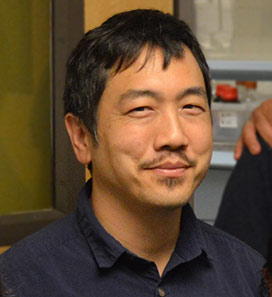
Kelvin Yen
Research Assistant Professor, University of Southern California
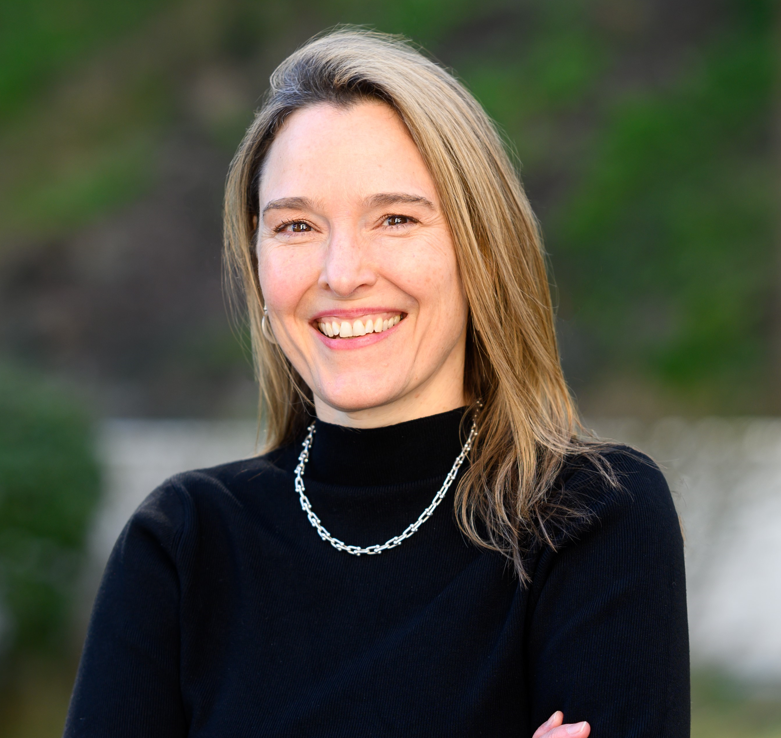
Leanne Jones
Professor, University of California, San Francisco
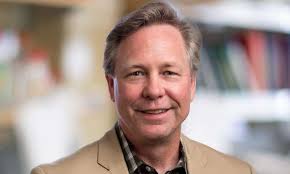
Gerald Shadel
Professor, The Salk Institute
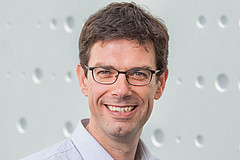
Thomas Langer
Director, Max Planck Institute for Biology of Ageing
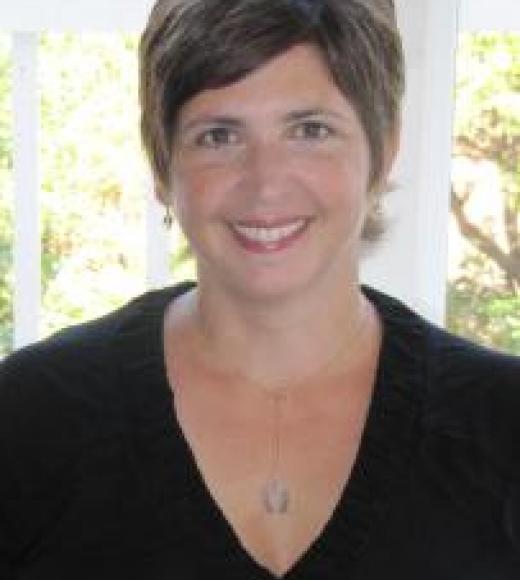
Jodi Nunnari
Distinguished Professor and Chair, UC Davis Dept of Molecular and Cellular Biology
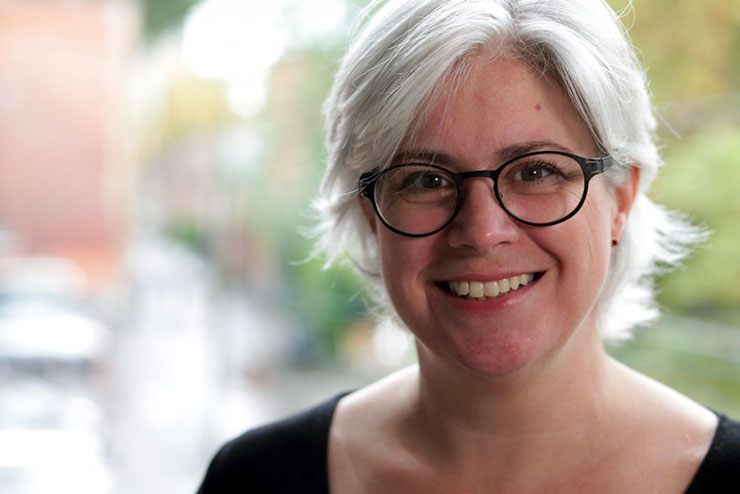
Heidi McBride
Professor, McGill University

Yousin Suh
Faculty, Albert Einstein College of Medicine
Programme
WEDNESDAY 27TH FEBRUARY 2019 |
||
|
13:00 – 14:00 |
Student & Postdoc Networking Lunch |
|
|
14:00 – 15:00 |
Registration & Welcome Reception |
|
|
15:00 – 15:10 |
Opening Comments |
|
|
15:10 – 15:50 |
Douglas Wallace |
A MITOCHONDRIAL ETIOLOGY OF THE COMMON “COMPLEX” DISEASES |
|
AGING AND STEM CELLS |
||
|
15:50 – 16:20 |
Matt Kaeberlein |
AGING AND MITOCHONDRIAL DISEASE: SHARED MECHANISMS AND THERAPIES |
|
16:20 – 16:50 |
Yousin Suh |
FUNCTIONAL GENETIC VARIATION IN NUCLEAR-ENCODED MITOCHONDRIAL GENES ASSOCIATED WITH HUMAN LONGEVITY |
|
16:50 – 17:20 |
Leanne Jones |
ROLE OF MITOCHONDRIAL DYNAMICS IN TISSUE STEM CELLS |
|
17:20 – 17:40 |
Mireille Khacho |
MITOCHONDRIAL DYNAMICS AND REDOX REGULATION OF STEM CELL FATE |
|
17:40 – 18:10 |
Refreshments |
|
|
18:10 – 18:40 |
Johan Auwerx |
NAD AND MITOCHONDRIA |
|
18:40 – 19:10 |
William Mair |
NEURONAL TORC1 MODULATES LONGEVITY VIA AMPK AND CELL NONAUTONOMOUS REGULATION OF MITOCHONDRIAL DYNAMICS IN C. ELEGANS |
|
19:10 – 19:30 |
Changhan Lee |
INTERGENOMIC BASIS OF MITONUCLEAR COMMUNICATION |
|
19:30 - 19:50 |
Amanda Souza |
METABOLIC PHENOTYPING USING AN UNTARGETED METABOLOMICS APPROACH AND LC-MS ANALYSIS |
|
19:20 – 19:50 |
Accompanying Guests Pre-Dinner Welcome Drinks |
|
|
19:50 |
Dinner |
|
THURSDAY 28TH FEBRUARY 2019 |
||
|
07:00 – 09:00 |
Buffet Breakfast at The Market Place |
|
|
MITOCHONDRIA, DISEASE AND INTERVENTIONS |
||
|
09:00 – 09:30 |
Anu Suomalainen |
MITOCHONDRIAL DISEASE PHYSIOLOGY REVEALS MECHANISMS OF METABOLIC SIGNALING |
|
09:30 – 10:00 |
Isha Jain |
TURNING THE OXYGEN DIAL AS A THERAPY: HYPOXIA TREATMENT FOR MITOCHONDRIAL DYSFUNCTION |
|
10:00 – 10:20 |
Anthony Grillo |
PROTEIN KINASE C IS A KEY TARGET FOR ATTENUTATION OF INFLAMMATION BY RAPAMYCIN DURING SEVERE MITOCHONDRIAL DISEASE |
|
10:20 – 10:40 |
Katharina Schlacher |
THE FANCONI ANEMIA PATHWAY PROTEINS PROTECT MITOCHONDRIAL DNA REPLICATION FORK TO SUPPRESS INFLAMMATION |
|
10:40 – 11:25 |
Group Photo, Refreshments & Poster Viewing |
|
|
11:25 – 11:45 |
Volkmar Weissig |
MITOCHONDRIA-TARGETED NANOCARRIERS |
|
11:45 – 12:05 |
Ronald Davis |
SMALL MOLECULE PROBES TARGETING NEURONAL MITOCHONDRIAL DYNAMICS INCREASE ATP PRODUCTION, RESCUE OXIDATIVE STRESS AND AMYLOID BETA MEDIATED NEUROTOXICITY |
|
12:05 – 12:25 |
Anna Klucnika |
THE USES AND MECHANISMS OF MITOCHONDRIAL RECOMBINATION |
|
12:25 – 13:00 |
Meet the Poster Presenters |
|
|
13:00 – 16:50 |
Lunch at Leisure & Free Time |
|
|
MITOCHONDRIA, DISEASE AND INTERVENTIONS II |
||
|
16:50 – 17:20 |
Eileen White |
MITOCHONDRIA AND CANCER |
|
17:20 – 17:50 |
Kelvin Yen |
A NOVEL MITOCHONDRIAL DERIVED PEPTIDE AFFECTING DIABETES |
|
17:50 – 18:10 |
David Kashatus |
DRP1 PROMOTES KRAS-DRIVEN METABOLIC CHANGES AND PANCREATIC TUMOR GROWTH |
|
18:10 – 18:30 |
Marija Sajic |
MITOCHONDRIAL DYSFUNCTION IN PERIPHERAL AXONS IS AN EARLY EVENT IN THE DEVELOPMENT OF DIABETIC NEUROPATHY INDUCED BY HIGH FAT DIET — A STUDY BY CONFOCAL MICROSCOPY AND ELECTROPHYSIOLOGY IN VIVO |
|
18:30 – 20:30 |
Poster Session & Refreshments |
|
|
20:30 |
Dinner |
|
FRIDAY 01ST MARCH 2019 |
||
|
07:00 – 09:00 |
Buffet Breakfast at The Market Place |
|
|
MITOCHONDRIAL HOMEOSTASIS AND MODES OF METABOLISM |
||
|
09:00 – 09:30 |
Thomas Langer |
PROTEOLYTIC CONTROL OF MITOCHONDRIAL MEMBRANE HOMEOSTASIS |
|
09:30 – 09:50 |
David Patten |
ALTERED MITOCHONDRIAL DYNAMICS IN METABOLICALLY FLEXIBLE CELLS DRIVES PROTECTIVE GLUTATHIONE SYNTHESIS |
|
09:50 – 10:20 |
Gerald Shadel |
ADAPTIVE RESPONSES TO MITOCHONDRIAL STRESS |
|
10:20 – 10:40 |
Brett Kaufman |
G-QUADRUPLEX DYNAMICS CONTRIBUTE TO EPIGENETIC REGULATION OF MITOCHONDRIAL FUNCTION |
|
10:40 – 11:25 |
Refreshments & Poster Viewing |
|
|
11:25 – 11:55 |
Heidi McBride |
EXPLORING THE MECHANISM OF IRON DELIVERY TO MITOCHONDRIA |
|
11:55 – 12:25 |
Luca Scorrano |
KEEPING MITOCHONDRIA IN SHAPE: A MATTER OF LIFE AND DEATH |
|
12:25 – 16:45 |
Lunch at Leisure & Free Time |
|
|
13:00 – 16:15 |
Group Activity: Snorkeling (sign-ups required in advance) |
|
|
MITOCHONDRIAL HOMEOSTASIS AND MODES OF METABOLISM II |
||
|
17:15 - 17:45 |
Marcia Haigis |
THE ROLE OF METABOLISM IN THE TUMOR MICROENVIRONMENT |
|
17:45 – 18:05 |
Michael O. Hottiger |
MITOCHONDRIAL ADP-RIBOSYLATION REGULATES PROPER MITOCHONDRIAL FUNCTION AND NAD+ SIGNALLING |
|
18:05 – 18:50 |
Refreshments & Poster Viewing |
|
|
18:50 – 19:20 |
Nika Danial |
MITOCHONDRIAL PYRUVATE HANDLING AND CELLULAR RESPONSES TO INFLAMMATION |
|
19:20 – 19:50 |
Steven S. Gross |
MITOCHONDRIAL GENE MUTATIONS TRIGGER A COMMON PATTERN OF METABOLIC REWIRING AND SUGGEST A NOVEL THERAPEUTIC STRATEGY |
|
19:50 – 20:10 |
Fahmida Jahan |
NAD+ DEPLETION AS A CAUSE OF PLACENTAL DYSFUNCTION IN PREECLAMPSIA |
|
20:10 |
Gala Dinner & Poster Awards |
|
SATURDAY 02ND MARCH 2019 |
||
|
07:00 – 09:00 |
Buffet Breakfast at The Market Place |
|
|
CROSSTALK AND COMMUNICATION |
||
|
09:00 – 09:30 |
Cole Haynes |
EXPANDING AND SHRINKING THE MITOCHONDRIAL NETWORK |
|
09:30 – 10:00 |
Jodi Nunnari |
MITOCHONDRIAL BEHAVIOR |
|
10:00 – 10:30 |
Jose Antonio Enriquez |
CONSEQUENCES OF mtDNA HETEROPLASMY |
|
10:30 – 10:50 |
Jorida Coku |
DISCRUPTED CALCIUM SIGNALING AT ENDOPLASMIC RETICULUM-MITOCHONDRIA CONTRACT SITES PROMOTES NEUROBLASTOMA MULTIDRUG RESISTANCE |
|
10:50 – 11:20 |
Refreshments |
|
|
11:20 – 11:40 |
John Lemasters |
A UNIFYING HYPOTHESIS LINKING MITOCHONDRIAL ADAPTATIONS FOR ALDEHYDE METABOLISM TO THE PROINFLAMMATORY AND PROFIBROTIC EVENTS OF ALCOHOLIC AND NON-ALCOHOLIC STEATOHEPATITIS |
|
11:40 – 12:00 |
Zhi Zhong |
SUPPRESSED MITOCHONDRIAL BIOGENESIS (MB) PLAYS AN IMPORTANT ROLE IN ACUTE KIDNEY INJURY (AKI) INDUCED BY SEVERE LIVER INJURY AND FIBROSIS |
|
12:00 – 12:20 |
Liming Pei |
SINGLE-NUCLEUS TRANSCRIPTOMIC SURVEY OF CELL HETEROGENEITY AND FUNCTIONAL REMODELING IN MITOCHONDRIAL CARDIOMYOPATHY |
|
12:20 – 12:30 |
Closing Comments |
|
Supported by
Venue & Location
Melia Nassau Beach All Inclusive
Overlooking one of the finest beaches in the world the Meliá Nassau Beach is surrounded by crystal blue waters and white sandy beaches. Located on the stunning Cable Beach, you are just a few minutes walk from the center, shops and restaurants. The beautiful Nassau Botanical Gardens are within easy reach (7km) and Lynden Pindling International Airport is situated only 9km away.
Throughout your stay delegates will enjoy a full meal plan, inclusive of beverages. Take your pick from Cilantro where you can experience the natural textures, aromas and flavors of Mexico, Nikkei, celebrated for its exquisite fusion of Japanese, Cantonese and Peruvian cuisine featuring a sushi bar and Teppanyaki tables, Estavida, an upbeat tapas lounge located in the hotel lobby serving innovative tapas and a wide selection of cocktails, Aqua, an A la carte restaurant specializing in exquisite, rustic Italian cuisine, The Market Place, where you will find an International buffet serving an array of exquisite dishes, O'Grille, an open air restaurant with fabulous views of the sea and pool serving casual beach fare and light bites and finally The Black Angus, a steakhouse featuring hip, contemporary jazz and modern decor, offering guests the finest quality prime cuts and the freshest ingredients.(This restaurant is not included in the all inclusive package, additional charges apply). The Gala Night takes place on the third evening of the conference with a mouth-watering feast of local cuisine, an open bar and amazing local entertainment. We welcome all delegates and their accompanying persons to the Gala Night – a truly fun filled night not to be missed!
Hotel Facilities
- 24 hour reception
- Room service
- 3 heated outdoor pools
- Complimentary resort wide Wi-Fi (guest rooms, throughout hotel, beach and conference areas)
- 24-hour Fitness Center
- 7 dining venues
- 4 bars.
- non-motorised water sports
The Bahamas is formed by over 700 islands, keys and islets located in the Atlantic Ocean and renowned for its warm sunshine, mild climate, fine, white sandy beaches, turquoise, crystal clear water and friendly people, making this the perfect environment to relax and unwind in your free time during the conference.
General Information
Venue Rating
★ ★ ★ ★
Currency
US Dollar (USD)
Address
Nassau W Bay St. Nassau Bahamas
Nearest Airport
Lynden Pindling International Airport
Location
The Melia Nassau Beach All-Inclusive is located right on the stunning Cable Beach just a few minutes away from the airport and city center; Nearby in Downtown Nassau you can experience the flavours of new foods at local restaurants, shop 'til you drop at Straw market or take a trip through time at the Pirates Museum. The beautiful Nassau Botanical Gardens are close by and water enthusiasts can enjoy non-motorized water sports right on property.
Nassau is the capital of the Bahamas. It lies on the island of New Providence, with neighboring Paradise Island accessible via Nassau Harbor bridges. The city has a hilly landscape and is known for it's fabulous beaches as well as its offshore coral reefs, popular for diving and snorkeling. It retains many of its typical pastel-colored British colonial buildings, like the pink-hued Government House.
If you are interested in this meeting but not yet ready to register, you can sign up for updates here and our team will keep you updated regarding deadline reminders and grant opportunities relating to this meeting only.
If you're interested in sponsoring this conference please contact us.
Conference Manager

Laura Trundle
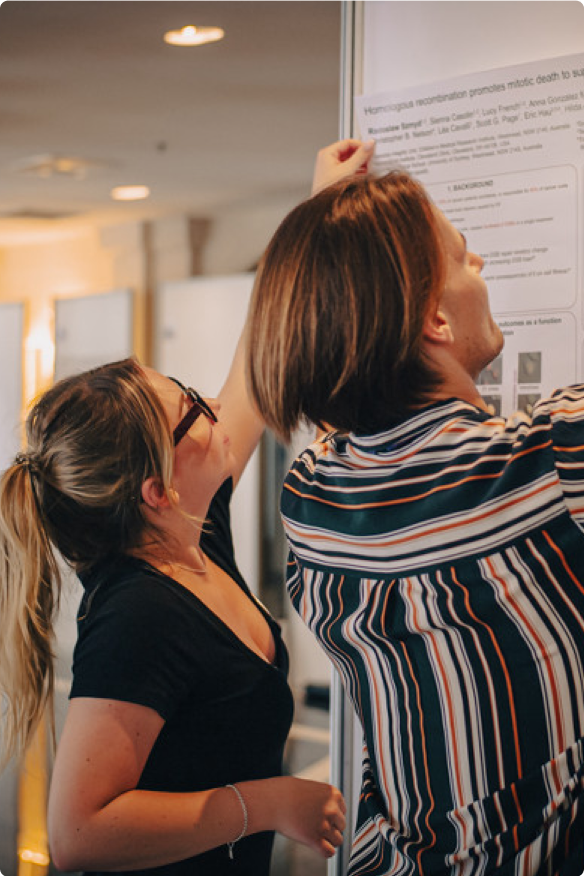
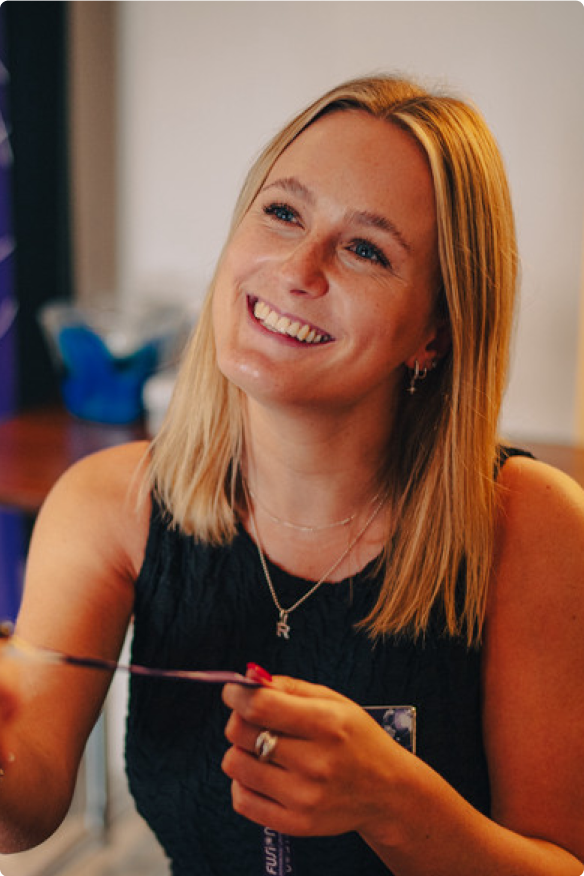
Need some help? Chat to the Fusion team today
As a family run business, our dedication runs deep. We’re committed to each other and, even more so, to every attendee’s experience, delivering a level of care and passion that’s truly unmatched.
